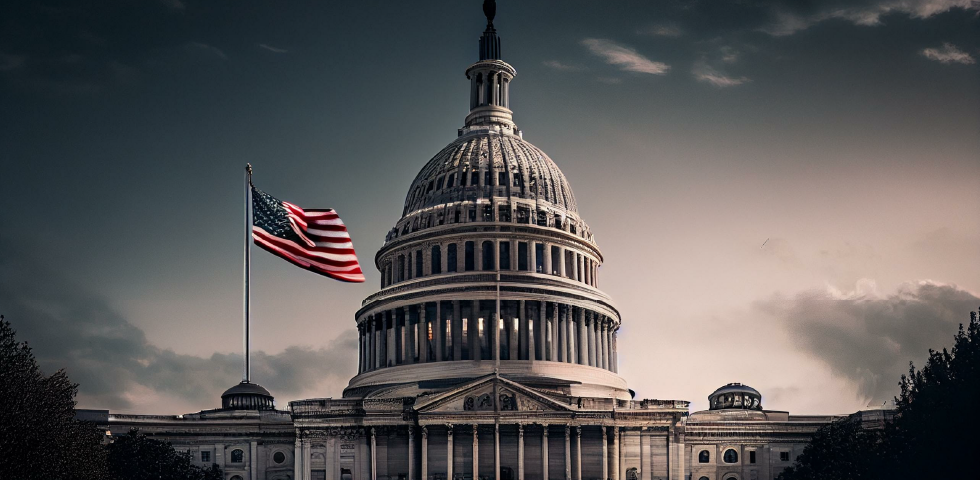Written by Megan Reid, Vice President, Account Management Operations
September 30th marks the end of fiscal year 2023 for the United States government, and to date, Congress has not enacted any of the twelve appropriations bills required to complete budget legislation for fiscal year 2024. Congress must act soon to reach a resolution to avoid a government shutdown. If the current funding for the government is not agreed upon and renewed, most government programs not designated as essential will be suspended.
Last week, a Continuing Resolution proposed by House Speaker Kevin McCarthy was blocked; this measure would’ve extended government operations until October 31st and allowed Congress to enact full-scale appropriations for 2024. Since 1980, when the government updated procedures allowing shutdowns during a funding gap, there have been four “true” shutdowns where operations were impacted for more than one business day. The longest was December 2018, a 34-day period when only five of the twelve appropriations bills were enacted due to a dispute over border wall funding.
In the event of a government shutdown, Social Security is protected by mandatory spending not subject to annual appropriations. Most of the work directly impacting Social Security applicants is deemed necessary, including critical functions like benefit payments, processing new applications and appeals, and scheduling and holding hearings. The Department of Disability Determination Services (DDS) continued activities include Initial Claim processing for terminally ill, compassionate allowance, and quick decision unit claims, and Reconsideration appeal adjudication. However, the Social Security contingency plan also clearly states that in case of an appropriations lapse, Social Security will “encourage DDS to continue limited services during a lapse under the Necessary Implication exception with the understanding that we will reimburse the DDSs for their work once we receive funding…each state will have to determine whether it can maintain limited DDS operations and pay its employees during a lapse.” In the case of a shutdown, this could mean that DDS operations could differ by state, though DDS operations have continued in the most recent government shutdowns. However, given the already significant strain on DDS resources and increasing claims backlogs, this could result in worsening claim backlogs.
In an op-ed piece for The Hill earlier this month, Max Richtman, president and CEO of the nonprofit National Committee to Preserve Social Security and Medicare, shared, “In the event of a shutdown, [Social Security] employees would be forced to continue working (without being paid until the shutdown ended) and they’d be limited to performing only their most basic work functions. Non-automated and non-exempted SSA operations would come to a screeching halt. Current work backlogs would begin to grow again. If that happens, seniors hoping to submit new Social Security claims, replace Social Security cards, or report a change in status may experience delays until the shutdown ends.”
Social Security’s contingency plan provides specifics for which activities will be continued and which discontinued should a shutdown occur. Here are a few highlights:
Operations Frontline Activities |
|
Continued Activities |
Discontinued Activities |
| Application for benefits | Benefit verifications |
| Request for appeals (Reconsideration, Hearing, Appeals Council) | Earnings record corrections and updates |
| Post-entitlement actions | Payee accountings |
| Non-receipts and critical payments | Requests from third parties for queries |
| Payee changes | Overpayments processing |
| Direct contact reinstatement of benefits | Replacement Medicare cards |
State Disability Determination Services Activities |
|
Continued Activities |
Discontinued Activities |
| Initial claims | End-of-line quality assurance reviews |
| Reconsiderations | IT enhancement activities |
Hearings and Appeals Activities |
|
Continued Activities |
Discontinued Activities |
| Hearing and deciding cases | Quality reviews unrelated to allowances |
| Drafting relevant notices for claimants | Processing bias complaints |
| Preparing electronic records | Responses to congressional inquiries on casework |
| Identifying missing evidence/record development | Enrollment of representatives eFolder access |
| Exhibiting case files for ALJs and decision writing | Responding to FOIA requests and public inquiries |
| Screening cases for on-the-record decisions | Providing training for hearing offices |
| Scheduling hearings | IT support for enhancements for hearing offices |
Brown & Brown Absence Services Group will continue monitoring the status of a potential government shutdown and Congressional actions taken in the upcoming weeks and report on any significant findings. If you have any additional questions about the impact a government shutdown may have, please reach out to us directly.




